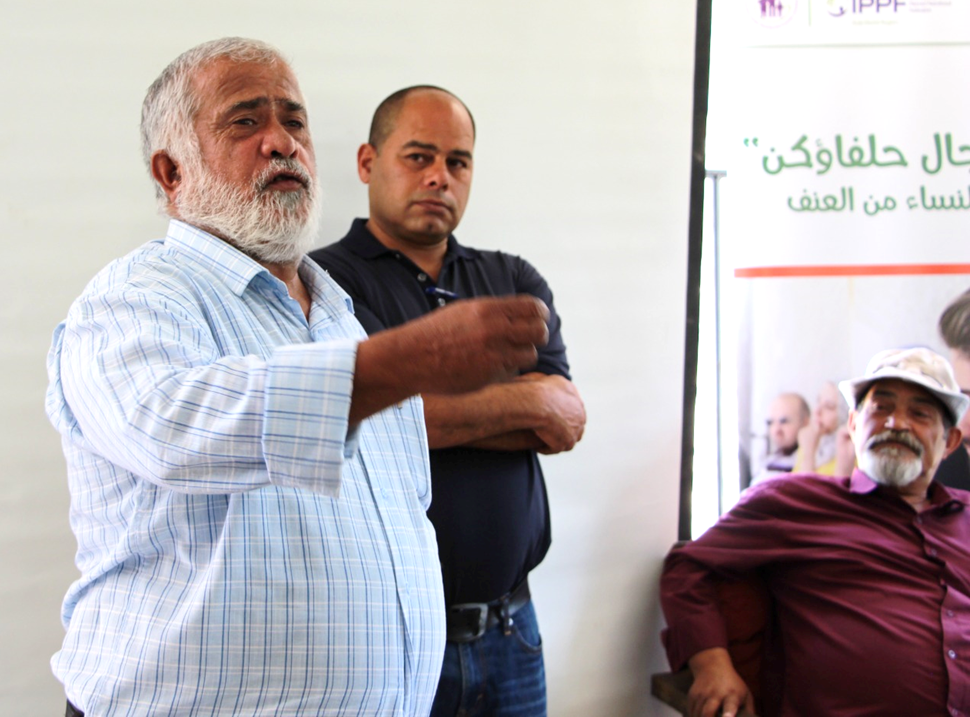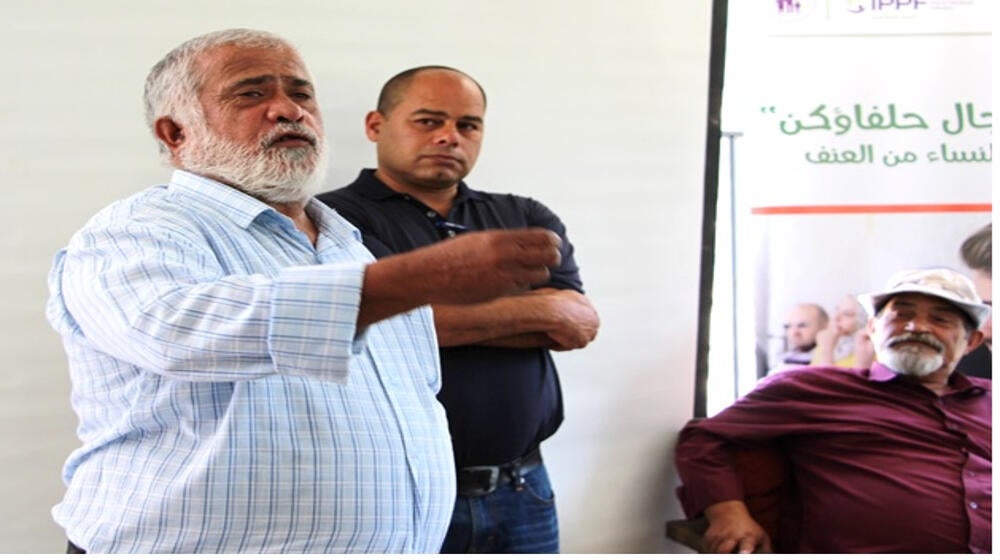By promoting and strengthening equal and respectful relationships among women, men, girls, and boys, Palestinian men are playing a leading role in advocating for women’s rights and an end to violence against them, with the Adwar Association in partnership with UNFPA through the HAYA Joint Programme.

“Traditional clans have completely denied women’s rights,” says Sheikh Mahmoud Al Kawasmeh. “They have dominated women’s issues with masculinity. From their point of view, women going out is shameful, being a divorcee is shameful, being a widow is shameful, and so, we have linked women and girls to a culture of shame.”
In Palestine, women make up almost half the population and of these, two in three ever married women are victims of violence by their husbands and two in five single women by family members.
A group of men in the West Bank are working to change these statistics. In partnership with the UNFPA through the HAYA Joint Programme, the Adwar Association formed the “Men’s Alliance”, In this Alliance, 60 men and male youth from the Bethlehem and Hebron communities advocate for ending violence against women. The Alliance is working on developing their knowledge and skills on issues related to violence against women, women’s rights, gender equality, and accountability mechanisms to advocate for women subjected to violence. They hope to do their part to help end this violence in their community entirely.
Sheikh Mahmoud is one of these men in the Alliance. He believes in a positive masculinity that encourages, supports, and empowers women. Working as a sheikh for over forty years, he says the main challenge is changing how people view and justify violence. “It is difficult to challenge the thoughts of people, such as on absolute masculinity, particularly regarding bad treatment of women, and there are difficulties dealing with society.”
Sheikh Mahmoud says violence against women and girls are found in all forms, not just physical. “Depriving her of her inheritance is violence. Depriving her of the right to choose her own husband is violence,” he explains. However, when asked whether he believes his society is justifying or preventing this violence, Sheikh Mahmoud says that there are those on both sides of the fence. “There are people who claim that we are against Islam and call for dissolution, and there are people who encourage us.”
Through the HAYA Joint Programme, Adwar and the Men’s Alliance, together with UNFPA hold dialogue meetings with justice and protection organizations to advocate for higher quality services for vulnerable groups. They also hold knowledge sharing sessions with other Palestinian men in the community and meet with decision makers to urge them to endorse family protection laws and procedures to protect women and girls from violence.
“The HAYA Joint Programme seeks to eliminate violence against women and girls through working with communities addressing attitudes and behaviours that justify violence against women and girls,” says HAYA Joint Programme Manager Hazam Tahbub.
“The work with Adwar helps,” says Sheikh Mahmoud. personally, has helped him not only personally but enriched his work with his congregation and community. “When I joined Adwar, I began to share the organization’s values in my speeches, lessons, and discussions in the villages and cities where I work.”
Sheikh Mahmoud believes that continuous communication with people can revive discussions around women’s rights and help catalyst change. However, more work is needed. “There needs to be changes to some laws,” says Sheikh Mahmoud. “Change is also needed in some speeches given in mosques to a more civil and civilized discourse consistent with Islam's positive treatment of women.”
Especially after his work with Adwar and the Men’s Alliance, Sheikh Mahmoud says he holds out hope for a better future. “I'm always optimistic,” he says.
|
Funded by the Government of Canada and jointly implemented by UN Women, UNFPA, UN-Habitat, and UNODC, the HAYA Joint Programme seeks to eliminate violence against women and girls through various outreach and awareness-raising activities, to increase access to necessary services for survivors of violence, as well as to strengthen the institutional capacity of government officials to develop and implement legal and policy frameworks promoting and protecting women’s and girls’ rights to live free from violence. |
|
|
|


